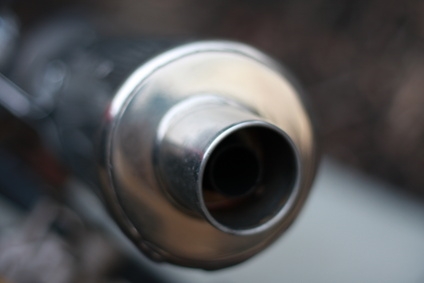
Exhaust systems are responsible for the disposal of exhaust gas created after engine combustion. Backpressure does not benefit engine performance as it returns exhaust into the engine cylinders instead of releasing it through the tailpipe. Backpressure can lessen fuel efficiency, reduce power and stall the engine.
Backpressure constricts exhaust flow. Backpressure also dirties the clean air/fuel mixture injected into engine cylinders during combustion. Backpressure is ever present in consumer vehicles but harmful when excessive.
Exhaust system piping diameter varies by vehicle. Proper piping diameter provides an optimal level of exhaust flow and velocity with minimal backpressure allowing an engine to reach full potential and efficiency. Overly small piping will reduce flow but excessively large piping reduces the velocity exhaust is released.
Plugs, obstructions or collapsed materials within exhaust components, including the catalytic converter or muffler, will decrease exhaust flow and velocity, thus returning exhaust gasses into the engine. Excessive backpressure reduces available power, overheats the engine and forces the engine to work harder, which reducing fuel economy. Exhaust backpressure test kits are available at auto retailers.